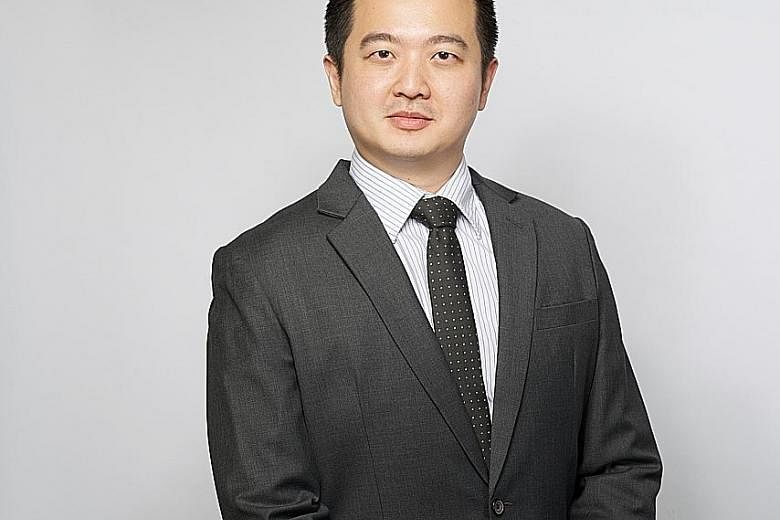Ask Mr Nico Purnomo Po about the world-beating stock rally that turned him into Indonesia's latest billionaire, and he will tell you that the market is rewarding his property company's ability to complete big projects in prime locations.
"There were concerns before about whether we could execute what we had promised to customers, but we have proven ourselves," the 37-year-old chief operating officer and controlling shareholder of Pollux Properti Indonesia said in an interview.
Other market observers are not so sure. To them, Pollux Properti's more than 500 per cent gain since mid-July looks like the latest example of a thinly traded stock surging way ahead of fundamentals.
The rally, by far the biggest among more than 4,700 shares in the Bloomberg World Index, has lifted Pollux Properti's valuation to 34 times net assets, 10 times higher than the industry average in Indonesia. Daily trading in the stock over the period has averaged around US$70,000 (S$96,000), meaning that it does not take much to boost the price.
Mr John Teja, a director of Ciptadana Sekuritas in Jakarta, said: "The shares have very little liquidity, so the price might not necessarily be a reflection of the company's fundamentals."
Mr Christopher Andre Benas, a Jakarta-based analyst who covers the real estate sector at RHB Research Institute, said the valuation "doesn't make sense".
Indonesia's stock exchange questioned the rise in August, and Pollux Properti pointed to an improvement in its financial situation. The bourse halted the shares from trade briefly early last month after they kept surging, and last Friday said it continues to monitor the stock.
Indonesia Financial Services Authority's capital markets director Fahri Hilmi said the group was coordinating with the exchange regarding Pollux Properti's rise.
On paper, the gains have lifted Mr Nico's net worth to US$3.6 billion, according to the Bloomberg Billionaires Index.
He owns 85 per cent of the company (his father, Mr Po Sun Kok, is chairman) via two holding firms. He also has a 90 per cent stake in the family's publicly traded pro-perty business in Singapore, Pollux Properties.
While Pollux Properti recently completed the World Capital Tower, one of the tallest buildings in Jakarta, many of its key assets are still works in progress. This includes Meisterstadt Batam, an ambitious development Batam, an hour by fast ferry from Singapore's southern coast.
The project, now a huge construction site, will eventually house a 100-storey tower for financial firms, a shopping mall, a hospital and high-rise condominiums.
Pollux Properti has a 51 per cent stake in Meisterstadt, the brainchild of the late Indonesian president B.J. Habibie, who was a Po family friend.
It is a long way from the firm's humble beginnings. Mr Nico's grandmother used to sell shirts that she sewed to friends in Semarang, a city in Indonesia's Central Java province. That textile business still exists via company Golden Flower, although the company now supplies big-label brands such as Calvin Klein, Zara and Muji. Shares in Golden Flower are up almost 800 per cent since its June listing.
Mr Nico, who declined to comment on his family's wealth, was born in Semarang and came to Singapore for an education, studying computing at the National University of Singapore.
He got his start in real estate in the city state, and later shifted his focus back to Indonesia, where housing and infrastructure needs have been escalating as the population grows.
"I spearheaded the expansion into property," he said of his transitioning of the business several years ago. "I saw good opportunities and felt it was the right time to enter."
He said Pollux Properti's meteoric share-price rise reflects the company's "investment properties, which will yield recurring income once operational".
In an Aug 15 filing, the company said its first-half profit was 35.9 billion rupiah (S$3.5 million), a 201 per cent increase from the same period a year earlier.
"These completions boost investor confidence as Pollux is able to complete mega-sized projects," Mr Nico said. "There is also certainty that these projects will provide stable recurring income for the future. Our projects are mostly located in ultra-prime locations and definitely landmark iconic buildings."
Some analysts are less optimistic.
Ms Christine Li, head of research for Singapore and South-east Asia at Cushman & Wakefield, said Pollux Properti may struggle to woo Singaporean buyers to its Meisterstadt Batam project, given a challenging financing environment.
"Because the Singapore Government has implemented several rounds of property-cooling measures, even financing overseas purchases has been tightened indirectly. This could potentially affect the affordability," she said.
Mr Benas of RHB Research said that even when taking into account Pollux Properti's undeveloped land, the stock surge since mid-July looks overdone. "The Indonesian market likes to exaggerate things. It is just sentiment."
BLOOMBERG

